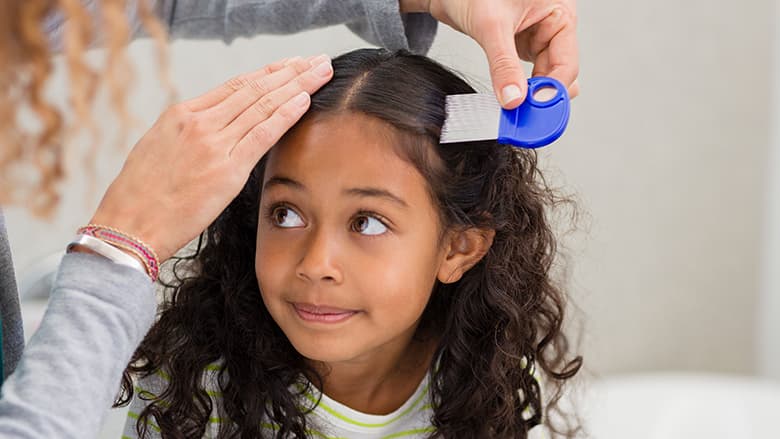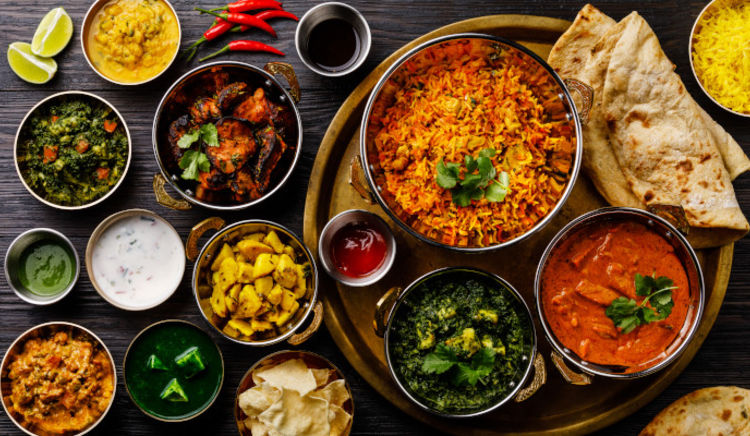A child’s scalp is more sensitive than an adult’s and requires special care. The numerous hair follicles and sebaceous secretion in the scalp make it an ideal warm humid terrain for the breeding of parasites. If you think that regular shampoo wash can take care of your kid’s hair and scalp, it is not true.

Balanced Nutrition
Food intake affects hair health. Oily foods tend to make hair lacklustre and weak. Nutrient-rich foods and a balanced diet are a must in this growing age. Vitamins, protein, omega-3, omega-6, zinc, iron, copper, calcium, fibre, folic acid, and beta-carotene are vital for hair and scalp.

|
Nutrient |
Foods Rich in the Nutrient |
Effect on Scalp |
|
Vitamin A |
|
|
|
Vitamin B |
|
|
|
Vitamin C |
|
|
|
Vitamin E |
|
|
|
Protein |
|
|
|
Omega - 3 |
|
|
|
Iron and Zinc |
|
|
|
Folic Acid |
|
|
Regular Head Massage
Massaging makes the roots strong by improving blood circulation. Dry massaging daily and using oil massage once a week will benefit the scalp and soothe nerves. You should use natural oils.
Cocomo hair oil combines the benefits of 12 natural oils, and its non-greasy, sweet-smelling formulation will nourish your child’s scalp without causing discomfort.

Oiling
This is vital for the scalp to keep away frizziness and dryness. Oiling once or twice a week is more than enough. Excessive oiling may lead to unnecessary build-up in the scalp and clogging of pores. This will not allow the scalp skin to breathe well and the natural sebum will not be able to exude outward effortlessly.
Washing
Regular hair washing cleans the scalp as well. Shampooing washes away dirt and grime from the head and hair. Shampoo your kid’s hair every time you oil. As with oil, do not wash more than twice a week. Use only kid-friendly shampoo only since products for adults contain harsh chemicals.

Cocomo shampoo and conditioner is a one-stop solution that gently cleans and conditions your child's scalp and hair. It is devoid of harsh chemicals and specially formulated for your young ones.
Read More on Hair Care for Your Kid
Comfortable Hairstyles
Hairstyles need to be easy on the scalp. Tightly doing up the hair can keep the hair in check but will cause breakage and itching. The child will scratch the scalp, which will cause further damage to the hair and scalp. Even if you opt for unique styles, take care to let the scalp breathe with comfort.
Read More on Easy Hairstyles for your Kid
Avoiding Chemicals and Heat Treatments
Heat usages such as curling or straightening is detrimental to the child’s hair and is an absolute no-no before they reach their teens. Chemical usage like hair colouring will cause a lot of damage to the tender heads of kids. Chemical-containing oils, shampoos, and conditioners must not be used.
Regular Scalp Examination
Examine the child’s scalp regularly. Do this even if your kid is a teenager. Some of the problems that you need to look out for are
- Grey or white flakes
- Tiny pus-filled bumps around hair follicles
- Small bumps on the head, face, or neck
- Greasy scales, red spots, rings, itchiness, dryness or inflammation
- Zigzag burrows (due to mites), lice and bald patches
Most hair and scalp problems can be taken care of when caught in time. Early diagnosis and treatment are better than long-lasting damage.
Skin Problems
If the kid has skin issues like eczema, alopecia, or psoriasis, they might affect the scalp's skin. So, a different kind of hair care may be required. The products need to be pre-tested for any ingredient allergy. A regular dermatological visit is a must in case of pre-existing skin conditions.
To conclude, kid scalps are vulnerable, and parental care is crucial because all children tend to ignore scalp care (be it the young ones or teens). The harmful chemicals, dust, and pollution may affect their scalp. Any neglect may lead to various scalp conditions. Chemical-free skin-friendly products to wash, clean, and moisturize, and healthy eating habits are essential for a healthy scalp.






